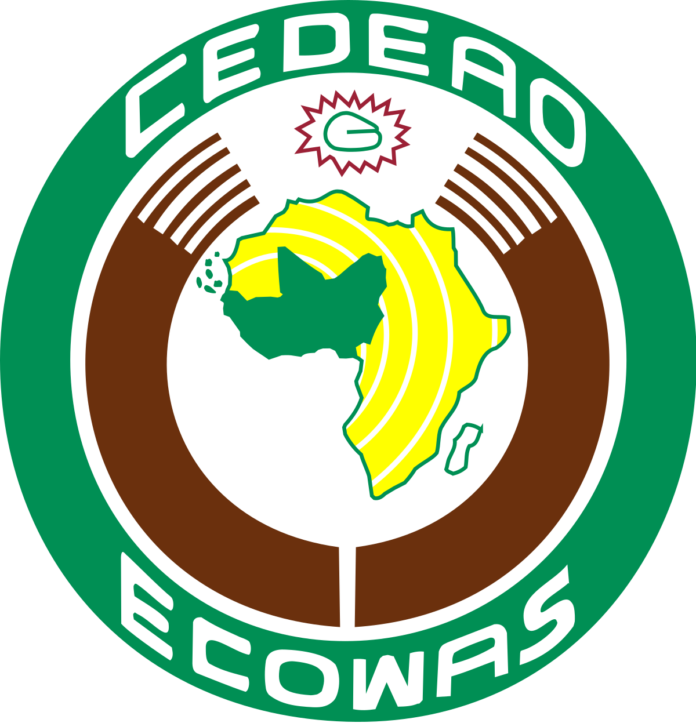The Economic Community of West African States (ECOWAS) and the African Development Bank Group have concluded consultations for the mid-term assessment of the West Africa Regional Integration Strategy Paper (RISP) 2020-2025.
The Bank Group approved the West Africa RISP 2020-2025 in May 2020 to support regional integration efforts in West Africa.
With an initial indicative investment plan of $4.52 billion, the West African RISP focuses on improving resilient infrastructure and supporting the development of regional businesses.
A statement issued in Accra said the meetings took place from September 5 to September 15, 2023, at the Headquarters of the ECOWAS Commission in Abuja, Nigeria.
During the period, the two sides assessed the key midterm results alongside a performance review of the Bank’s regional portfolio.
It said the evaluation focused on current issues around West African integration: challenges, opportunities, and prospects.
It also reviewed the Bank’s strategic direction and priority intervention areas, priority projects common to the two institutions and the state of their cooperation.
The statement said it also assessed the state of collaboration between the Bank and ECOWAS and it fostered a consensus on the outlook, direction, and areas of intervention within the framework of the Bank’s future priority projects.
Other pertinent issues, including economic affairs and agriculture, human development and social affairs, infrastructure, energy and digitalisation, political issues, peace and security, transport, and information and communication technologies, were also discussed.
Mr Lamin G. Barrow, Director General of the Nigeria Country Department, who led the Bank delegation, underscored the growing partnership between ECOWAS Commission, the Bank, and the regional institutions in the midterm assessment.
He said, “After three years of implementing our regional strategy in a context marked by a series of shocks, health, security, socio-political, climate, environmental, food insecurity risks and a wave of unconstitutional power change, there was a need to take stock, draw lessons and propose corrective measures for immediate implementation over the remaining two years, that is, from 2024 to 2025.”
Mr Omar Alieu Touray, ECOWAS Commission President said, “For regional integration institutions like ECOWAS, cooperation with the African Development Bank is essential, and implementation of the RISP is at the heart of our mandate.”
He said that was “why our must seize this opportunity to interact and chart the way forward for our two institutions. This means consolidating gains and repositioning our activities and institutions to achieve tangible results. The challenges ahead are colossal.”
During the mission, the Bank Group delegation discussed the Bank Group’s Strategy for addressing Fragility and Building Resilience in Africa (2022-2026).
The Bank Group also presented an overview of the “Security-indexed Investment Bonds” at the meeting.
The studies for the Abidjan-Lagos highway project were reviewed during the portfolio evaluation and this paves the way for the construction to start in early 2024 of a 1028-kilometre highway linking Côte d’Ivoire, Ghana, Togo, Benin, and Nigeria.
Under its Regional Integration Strategy Paper, the Bank has mobilized $884.14 million since 2020, covering 70 new operations, almost double the 38 projects planned initially.
The projects include the Rosso Bridge between Senegal and Mauritania; the Trans-Gambia Corridor with the bridge over the Gambia River between Senegal and Gambia; the Niger-Algeria Trans-African Highway Project; phase 2 of the Lomé-Cotonou Highway Refurbishment Project; the Mano River Transport Development and Facilitation Project, etc.
Mr Youssouf Kone, Principal Regional Integration Coordinator for Central and West Africa and Mr Ometere Omoluabi Davies, Principal Regional Integration Coordinator for the Nigeria Country Department presented the implementation status of the various projects, lessons learned and recommendations.
Topics covered included innovation in co-financing methods and resource mobilization, refining responses to fragility and strengthening the public’s resilience, reinforcing project implementation units.
Ms Marie-Laure Akin-Olugbadé, the Bank’s Vice-President in charge of Regional Development, Integration and Service Delivery, said, “The Bank Group would continue to provide decisive support to Member States and the ECOWAS Commission under the High-5 priority of “Integrate Africa.”
She called for the Bank’s interventions in the most vulnerable segments of the population, including young people and women, to provide them with economic opportunities while strengthening institutional governance, the resilience of the public and addressing the causes and effects of regional instability.
“Without stability and peace, there can be no development and no regional integration,” she said.
Other members of the Bank delegation were Mr Joseph M. Ribeiro, Acting Director General of West Africa; Mr Jean-Guy Afrika, Acting Director of the Regional Integration Coordination Office; Mr Yero-Baldeh, Director of the Transition States Coordination Office; and Mr Bruno Boedts, implementation support Manager for regional
operations.
GNA





